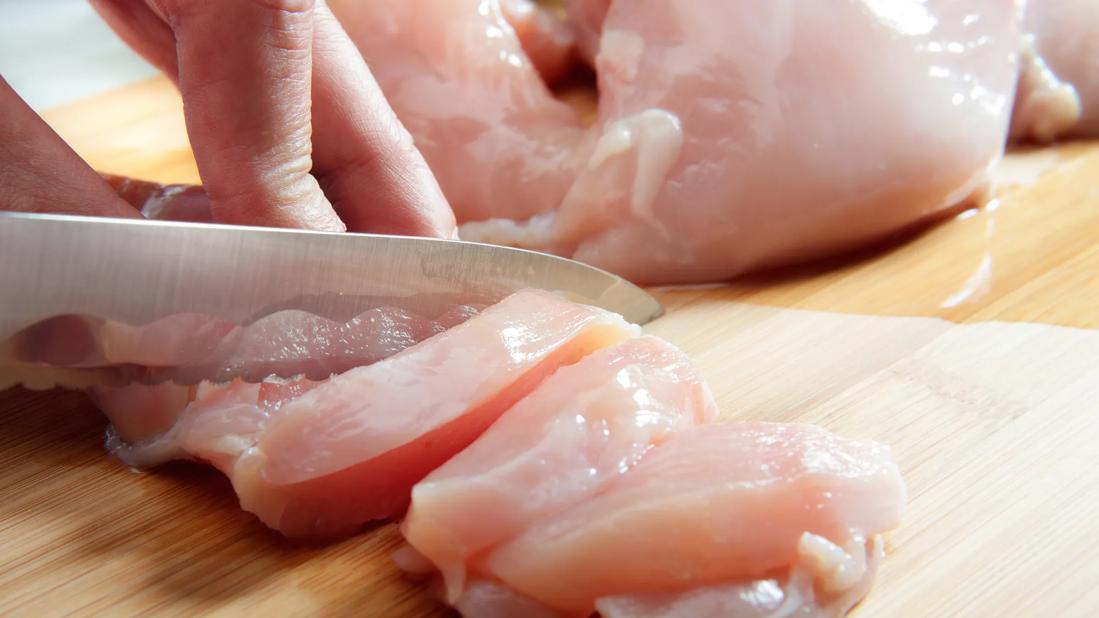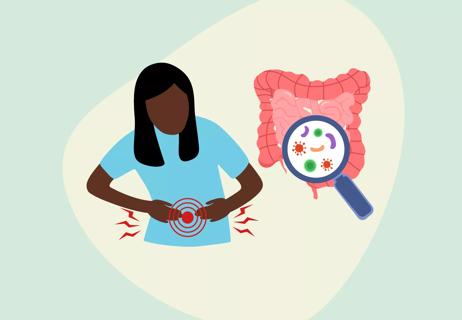Rinsing raw chicken raises the risk of spreading harmful bacteria and causing foodborne illness

All sorts of icky bacteria can be found on raw chicken. So, given that nobody wants that stomach-churning stuff to reach their gut, should you rinse or wash raw chicken before cooking it?
Advertisement
Cleveland Clinic is a non-profit academic medical center. Advertising on our site helps support our mission. We do not endorse non-Cleveland Clinic products or services. Policy
Let’s make this answer simple: NO.
Here’s why it’s not the best idea, according to registered dietitian Beth Czerwony, RD, LD.
Raw chicken and its juices can carry harmful bacteria like Salmonella or Campylobacter. Both can lead to foodborne illness and the uncomfortable symptoms (diarrhea, stomach pain and vomiting) that often follow.
While it may sound counterintuitive, washing raw chicken to remove bacteria can increase the chance of illness.
The reason? Let’s just say the splish-splash of chicken juice and water is problematic.
“When you rinse raw chicken, the water picks up ‘chicken juice’ and all the bacteria in it,” explains Czerwony. “You can contaminate your sink, countertops, cutlery, food and anything else in the splash zone.”
Besides, there’s NO NEED to wash your chicken before turning it into a meal. Cooking chicken to the proper internal temperature — 165 degrees Fahrenheit (73.9 degrees Celsius) — kills germs or bacteria on chicken.
“Whatever worries you might have about bacteria will be gone before the chicken hits a plate,” she notes.
If you’re determined to cut down on raw chicken juices before cooking, you can gently pat the poultry with a paper towel. This method still requires caution to avoid cross-contamination, including:
Advertisement
Never use soaps or detergents on raw chicken, as the chemicals can make it unsafe to eat.
Letting raw chicken or other meat soak in a brine solution is a personal preference and serves no purpose for food safety, according to the U.S. Department of Agriculture (USDA). (It seems this is a frequent question for the USDA’s Meat and Poultry Hotline.)
But if you do soak your chicken, the USDA recommends the following steps to avoid spreading bacteria:
What else can you do to limit the spread of harmful bacteria when you’re working with raw chicken in the kitchen? Here are four more recommendations from Czerwony.
So, are all these precautions really necessary? Consider this: It’s estimated that about 1 million people in the United States get sick every year from eating contaminated poultry, according to the Centers for Disease Control and Prevention (CDC).
“Chicken is a great source of protein and a nutritious meal choice,” emphasizes Czerwony. “To get those benefits instead of food poisoning, be careful with chicken in the kitchen and make sure it’s fully cooked before you eat.”
Advertisement
Advertisement

Sign up for our Health Essentials emails for expert guidance on nutrition, fitness, sleep, skin care and more.
Learn more about our editorial process.
Advertisement

Salmonella is a common bacterium that can contaminate raw meat, eggs, seafood and more

Keep cooked rice and pasta in your fridge — not on your counter — to help prevent this sneaky food poisoning

Mushroom poisoning is real — and it can cause liver failure

Food poisoning typically passes within 12 to 48 hours, with symptoms including diarrhea, nausea, stomach pain and vomiting

Learn about the symptoms and find out how to protect yourself and your family

Children should be screened for lead poisoning starting at ages 1 and 2

An expert warns us about the dangers

A dermatologist’s advice for finding some relief for that itchy rash

Even small moments of time outdoors can help reduce stress, boost mood and restore a sense of calm

A correct prescription helps your eyes see clearly — but as natural changes occur, you may need stronger or different eyeglasses

Both are medical emergencies, but they are very distinct events with different causes